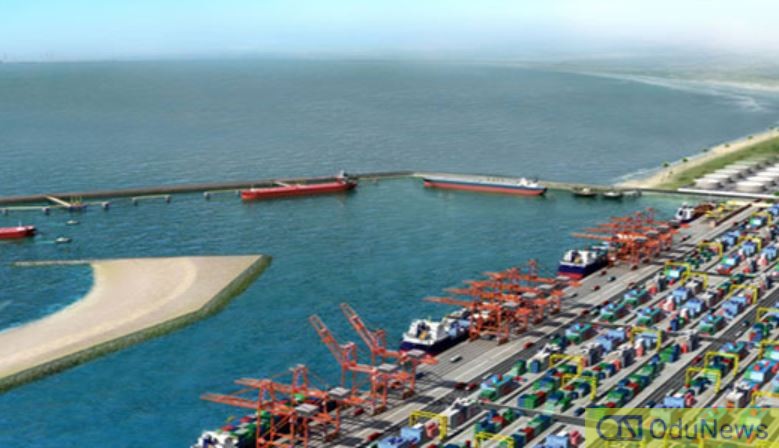
Nigeria’s maritime sector has reached a significant milestone with the launch of COSCO, ONE (Ocean Network Express), and ZIM alliance services at the Lekki Deep Sea Port. This landmark development was celebrated last week with the arrival of the E. A. Centaurus, a 277-meter-long vessel capable of handling 7,000 TEUs, making it the largest COSCO ship to dock in Nigeria.
Strategic Maritime Advancement
Christophe Cassang, CEO of Lekki Freeport Terminal, described the event as a pivotal moment for the terminal’s growth.
“Through strategic partnerships with global shipping leaders like COSCO, ONE, and ZIM, we are strengthening our international presence and unlocking new opportunities for trade and industry in Nigeria and the region,” said Cassang.
He added that advanced infrastructure and a skilled workforce position the terminal as a future hub for maritime activities in West Africa.
A Transformative Vision
Du Ruogang, Managing Director of Lekki Port, highlighted the significance of the bi-weekly calls inaugurated by the COSCO, ONE, and ZIM consortium.
“This development underscores our commitment to positioning Lekki Port as a transformative force in Nigeria’s maritime industry,” Ruogang stated. “This achievement marks the beginning of a new era of increased cargo volumes and greater efficiency for businesses nationwide.”
The arrival of the COSCO vessel reinforces Lekki Port’s status as a catalyst for economic revitalization and improved trade logistics in the region.
Driving Investment and Economic Growth
Adesuwa Ladoja, CEO of Lagos Free Zone, emphasized the broader economic impact of the alliance, noting that the introduction of global shipping services would attract substantial foreign direct investment (FDI) and spur business growth in the Lekki economic region.
“With four major shipping lines now calling at Lekki Port, we provide customers with more options and access to world-class facilities. This fosters the growth of businesses in the Lagos Free Zone and beyond,” Ladoja said.
The new services enable companies to efficiently import raw materials and export finished goods, supporting Nigeria’s drive for economic diversification and global competitiveness.


Comments are closed.